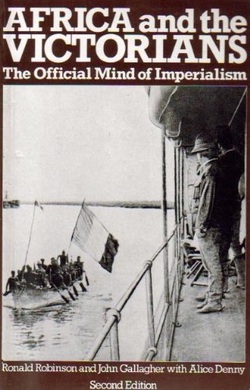
Robinson and Gallagher disagreed with the arguments of the economic historians, but they full-heartedly embraced the 'spirit of abstraction' that accompanies such debates. As a consequence, historic figures like Gladstone and Goldie, Chamberlain and Salisbury, Kitchener and Rosebery peak out from their graves, but never fully come to life. The ideas that inspired them remain mysteriously buried, for the authors offer no intellectual history of Victorian morality and its discontents. Surely such an examination would shed light on how liberalism and Evangelicalism interacted to create the predominate 'spirit of the age' that suffuses Africa and the Victorians as a necessary condition for both formal and informal modes of imperialism. Still, despite the book's brevity and abstractions, it unveils the tension of late-Victorian foreign relations, and provides a fascinating window into the tragi-comedy of imperial foreign policy and its unexpected consequences.
 RSS Feed
RSS Feed